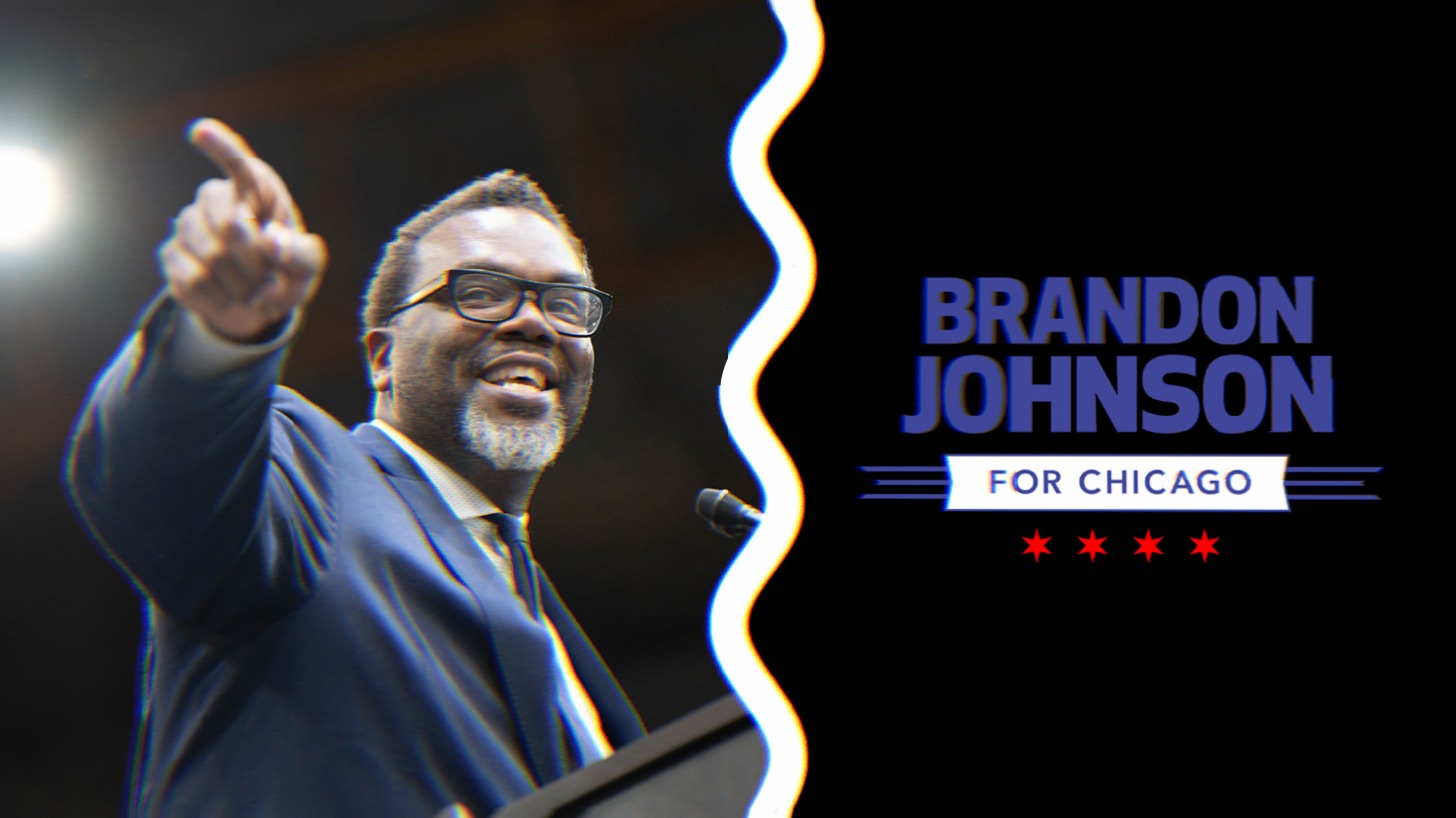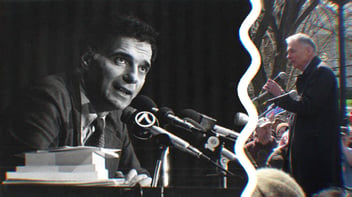Progressive Spotlight: Brandon Johnson.
The Windy City’s Underdog Mayor.
 Image Description: An image of Brandon Johnson smiling and pointing at a podium, alongside his campaign logo that says Brandon Johnson For Chicago.
Image Description: An image of Brandon Johnson smiling and pointing at a podium, alongside his campaign logo that says Brandon Johnson For Chicago.
In the early days of what the political and media establishment considered a long-shot bid for Brandon Johnson to become mayor of Chicago, a poll came out that appeared to confirm their bias: With only three percent of support, the upstart politician and former teachers’ union organizer was likely facing long and potentially impossible odds.
Such dismal indicators would represent an early death knell for any campaign. But not Johnson, who was also up against the mighty Chicago political machine, an opponent who was part of that very ecosystem, a significant lack of name recognition, and a skeptical media establishment.
Despite the hostility, Johnson ran a grassroots campaign that was so effective that he presented a blueprint for other progressive candidates of what’s possible. But Johnson was not alone. He had inspired an entire network of organizers from across Chicago to campaign on his behalf, knocking on doors, making phone calls, and importantly, discussing issues that were important to the city’s residents. His was not a campaign that prioritized any single issue—but instead offered various solutions to the mounting problems important to different communities.
In a shocking upset, Johnson beat out the incumbent Lori Lightfoot to advance to the runoff, which he won by nearly 5 percent—making him one of the most unlikely candidates to reach Chicago’s fifth floor, as it’s called, in generations.
Before rising to local prominence, Johnson made his mark in the classroom as a public school teacher. A talented educator, he became involved in one of the most active labor organizations in the city, the Chicago Teachers Union (CTU).
Johnson’s time at CTU was somewhat of a political awakening. In September 2012, CTU engaged in a historic strike that gripped the city and the country, with waves of teachers in red flooding the streets. Lasting seven days, the action resulted in concessions from then-Mayor Rahm Emanuel, a leading proponent of school privatization who would go on to close dozens of public schools, disproportionately impacting the city’s Black youth.
The strike had far-reaching consequences for Johnson and the city. It united various political organizations in the city and inspired the formation of other grassroots groups, including an independent political organization called United Working Families, which supported Johnson’s mayoral campaign.
For Johnson, the CTU strike, a risky endeavor itself, was his first real challenge to the establishment—something he’d recreate a decade later.
Jackson Potter, vice president of CTU, told News Beat podcast that Johnson was among the first to join a new organization department within CTU, and he emerged as a leader during the strike.
“You look at photographs or you talk to people, they’ll tell you Brandon was leading marches downtown. We’re flooding the financial district and ‘Hey, hey, ho ho Rahm Emanuel has got to go’ [is] booming as an echo, ricocheting off the skyscrapers. And it’s unmistakable. Rahm Emanuel is sequestered in his office having to hear this for a week, you know, and it just fills the airwaves. There’s no way to distort it—it’s just a massive expression of resistance that Chicago hadn’t seen in decades.”
During his campaign, Johnson pledged greater investments in youth employment, housing, and mental health support, the latter of which fell under a broader plan called “Treatment Not Trauma” that would establish a mobile nonpolice crisis response team.
Johnson also promised to address homelessness by raising taxes on purchases of $1 million-plus homes. In one of the first tests of his campaign pledges, the measure, dubbed “Bring Chicago Home,” failed during a March referendum.
In perhaps one of his most closely watched moves given his background as a teacher, Johnson retooled the Department of Education, replacing the existing board with public education advocates.
It’s still much too early to judge Johnson’s tenure. But in one of his first moves, he enlisted the support of hundreds of stakeholders to create a progressive blueprint to address some of Chicago’s most pressing issues. It was very much an extension of his campaign, which was characterized by a diverse coalition. As with any progressive leader, Johnson has a lot to prove. But he’s already shown he’s up for a challenge.
Image Source
- Jacob Waller, CC BY-SA 4.0, via Wikimedia Commons. Changes were made.
- Brandon Johnson for Chicago, Public domain, via Wikimedia Commons. Changes were made.
Rashed Mian is the managing editor of News Beat. Mian previously covered civil liberties and the Muslim American community for Long Island Press. Mian graduated with a degree in journalism from Hofstra University. Mian is interested in under-reported stories that impact disenfranchised communities as well as issues related to civil liberties.


